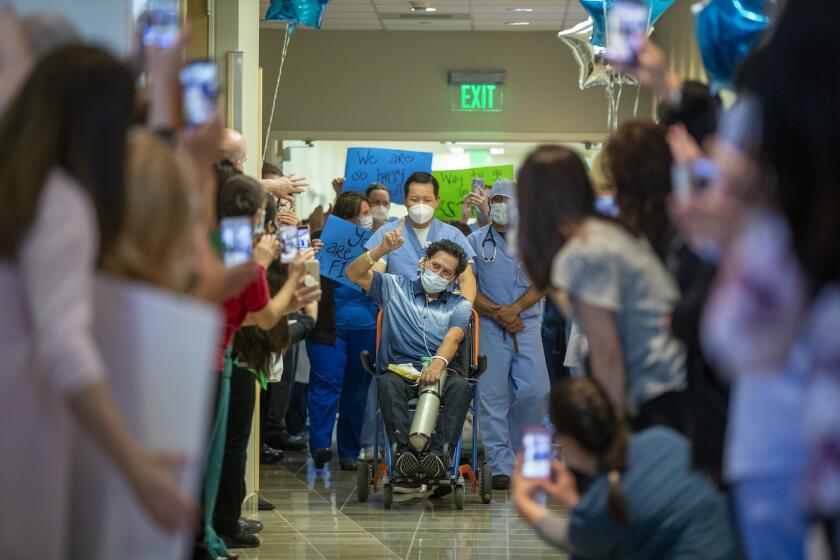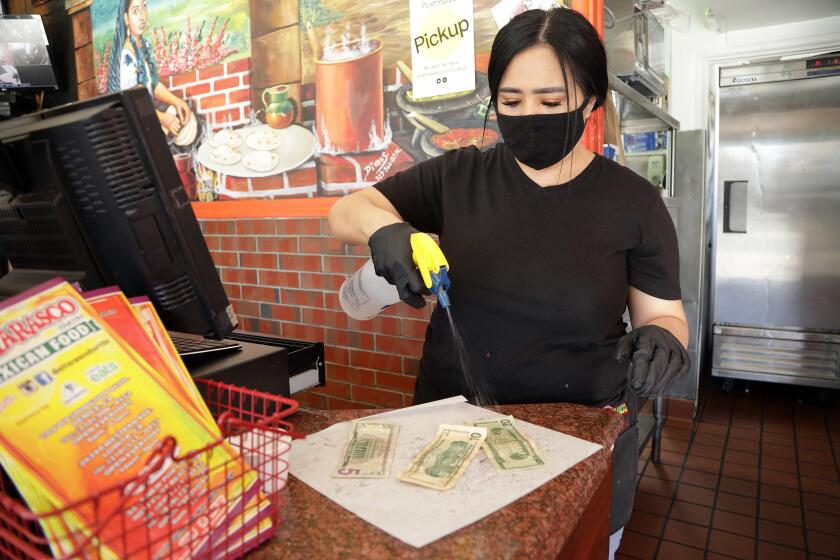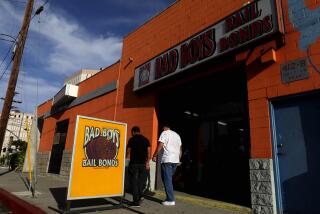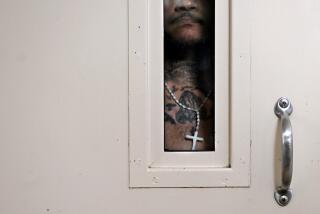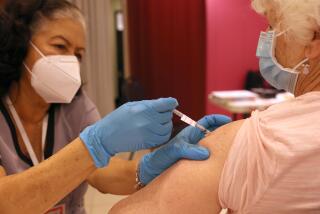California courts eye dramatic new steps to slow spread of coronavirus
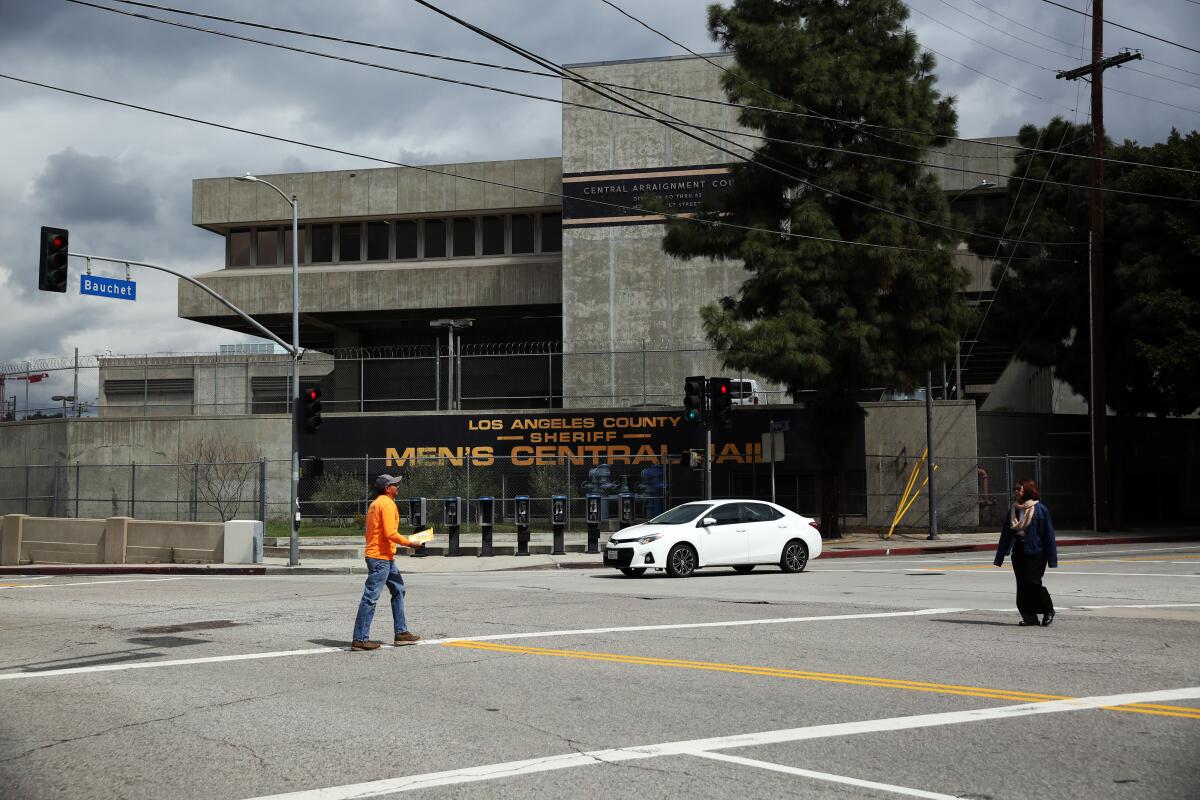
ORINDA, Calif. — In dramatic moves aimed at slowing the rapid spread of the coronavirus, California judicial leaders are expected to adopt a statewide emergency order setting bail at zero for misdemeanor and lower-level felony offenses.
In a remote meeting Monday, the Judicial Council also is expected to vote to suspend evictions and foreclosures and to allow for the expansion of court hearings held by video or telephone.
The moves come as the number of confirmed coronavirus cases topped 15,000 in the state, with more than 350 deaths. Los Angeles County had a particularly grim weekend, recording 43 deaths, with confirmed cases nearing 6,000.
Chief Justice Tani Cantil-Sakauye heads the council, the policymaking body for California’s court system. Gov. Gavin Newsom has given her and the council, which is primarily made up of judges, extraordinary temporary powers to suspend laws to deal with the health crisis.
For criminal and juvenile proceedings, including arraignments and preliminary examinations, the council will direct courts to prioritize the use of technology to meet legal deadlines and ensure that defendants and children are not held in custody without timely hearings, according to a report prepared for Monday’s meeting.
These are some of the unusual new scenes across the Southland during the coronavirus outbreak.
In criminal cases, the defendant must agree before a court hearing can be held remotely.
Orange County Dist. Atty. Todd Spitzer last week called on judicial leaders to issue a statewide order requiring preliminary hearings be held remotely. Orange County Public Defender Sharon Petrosino countered that clients had a constitutional right to appear in person for preliminary hearings.
“During the COVID-19 pandemic,” the report says, “trial courts must protect defendants’ constitutional rights to have the assistance of counsel and to be personally present with counsel, and at the same time take steps to protect the health of defendants, judicial officers, court staff, counsel, and all those who are required to be present in court.”
During preliminary hearings, prosecutors must show there is sufficient evidence to believe a crime has been committed. Defense lawyers say defendants must be able to see the witnesses testifying against them and confer with counsel.
Another area of deep concern is California’s prisons, where coronavirus cases are rising.
A federal court panel has denied an emergency motion to force California prison officials to move thousands of inmates out of harm’s way.
“We are living in unprecedented times. The spread of COVID-19 is a global crisis, a crisis that is heightened in the most vulnerable groups among us,” the 13-page ruling begins. But in the end, the deciding judges wrote, the decision on whether to require mass prison releases and other measures is not theirs to make.
Los Angeles Times’ visual coverage of the coronavirus crisis
The number of prison infections grew in the two days since the judges held a hearing on the emergency motion. By Saturday, 60 people in the prisons — 47 workers and 13 inmates — were diagnosed with COVID-19.
The California Department of Corrections and Rehabilitation said eight inmates are ill at the state prison in Lancaster, four prisoners are infected at the California Institution for Men in Chino, and one at North Kern State Prison.
The request by prisoners’ attorneys for mass releases is “understandable,” and inmates have an 8th Amendment right to be protected from disease, the ruling states. But the three judges on the special panel ruled that dealing with a pandemic is beyond its authority.
The three-judge court was created in 2007 to address chronic prison overcrowding, and its powers in 2009 were affirmed by the U.S. Supreme Court. The judges Saturday said the question of protecting prisoners from COVID-19 belongs before a single court, such as one overseeing inmate medical care.
“We take no satisfaction in turning away Plaintiffs’ motion without reaching the important question of whether Defendants have implemented constitutionally adequate measures to protect the inmates of California’s prisons from the serious threat posed by this unparalleled pandemic,” the ruling stated.
Inmate lawyers said they plan to refile the motion before a single court. “Yes, definitely,” said Don Specter, executive director of the Prison Law Office in Berkeley.
The decision by the three-judge court also laid out expectations that the state prison system needs to do more.
“It is likely that only through significant effort will California’s prisons be able to minimize the spread of COVID-19,” judges wrote.
“It’s a clear message to the state,” said Michael Bien, one of the lead attorneys for inmates in the federal civil rights case.
More to Read
Sign up for Essential California
The most important California stories and recommendations in your inbox every morning.
You may occasionally receive promotional content from the Los Angeles Times.
